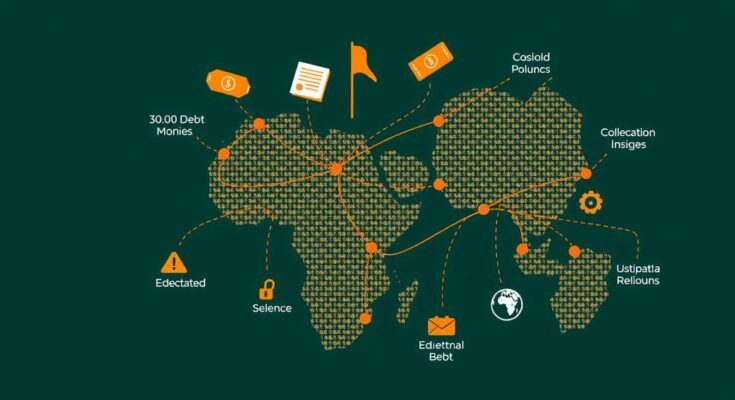This article examines the critical relationship between public debt and educational access, focusing on Zimbabwe, Eritrea, South Sudan, and South Africa. It highlights how financial challenges and poor governance hinder educational investment, leading to significant disparities in access and quality. The article emphasizes the need for effective debt management strategies and international cooperation to prioritize education amidst economic constraints.
The relationship between public debt and the right to education is exceedingly complex, as demonstrated by the cases of Zimbabwe, Eritrea, South Sudan, and South Africa. These nations reveal how financial limitations and governance challenges hinder educational access and quality, often leading to detrimental consequences for the youth and long-term national progress. Zimbabwe’s history of economic mismanagement has drastically reduced investments in education, while Eritrea’s focus on military expenditure has compromised educational opportunities. In South Africa, although economically advanced, the legacy of apartheid creates significant disparities in access. South Sudan faces extreme challenges due to conflict and corruption, severely affecting its educational infrastructure. These examples underscore the necessity of meticulous debt management and the reallocation of resources to prioritize education, demonstrating that effective fiscal policies must address the constraints posed by national debt. Moreover, an international perspective reveals the importance of aligning debt management with frameworks such as the International Covenant on Economic, Social and Cultural Rights and the United Nations’ Sustainable Development Goals to ensure educational rights are protected even in fiscal turmoil. The call for robust governance, transparency, and community engagement is imperative, as it influences how resources are allocated towards education, ultimately determining a nation’s future prospects. Mobilizing these efforts requires collaborative strategies among policymakers, international organizations, and civil society to uphold educational rights amidst economic challenges.
The intersection of debt and education presents critical challenges for numerous nations, particularly in Africa. Countries such as Zimbabwe, Eritrea, South Sudan, and South Africa exemplify how public debt, compounded by ineffective governance and economic mismanagement, adversely impacts educational systems. Inadequate funding leads to reduced access to quality education, thereby perpetuating cycles of poverty and limiting future opportunities for youth. This overview sets the stage for understanding the necessary financial and structural reforms required to reconcile the pressing needs for education with fiscal obligations.
The experiences of Zimbabwe, Eritrea, South Sudan, and South Africa highlight an urgent need for effective debt management strategies that prioritize education. Addressing financial constraints through comprehensive governance reforms and transparent practices is essential for ensuring equitable access to quality education. These nations exemplify the necessity for international collaboration to realign debt policies with the intrinsic right to education, ultimately fostering sustainable development and addressing educational inequalities. The lessons learned should inspire collaborative action from policymakers and civil society to protect educational rights and promote social equity.
Original Source: www.amnesty.org




